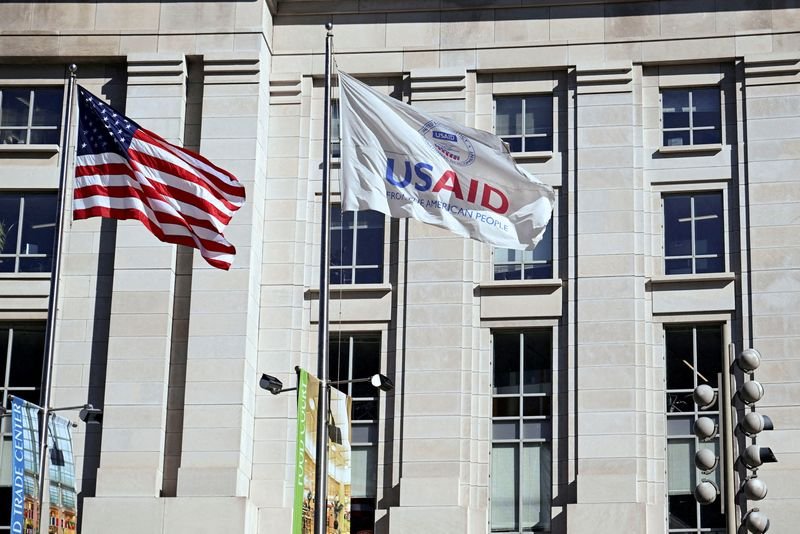Emerging economies most vulnerable to USAID elimination
Published by Global Banking & Finance Review®
Posted on February 14, 2025
3 min readLast updated: January 26, 2026

Published by Global Banking & Finance Review®
Posted on February 14, 2025
3 min readLast updated: January 26, 2026

USAID funding cuts pose risks to emerging economies like Ukraine, Jordan, and Syria, potentially destabilizing their economies.
By Libby George and Rodrigo Campos
LONDON (Reuters) - War-torn countries, those with high levels of debt and U.S. allies such as Jordan have the most to lose if the United States Agency for International Development is dismantled, as proposed by the Trump administration.
USAID has provided significant budgetary support in Ukraine and Jordan in particular, JPMorgan noted, and making up the lost support for healthcare, agriculture and infrastructure in those countries and elsewhere will be tough.
JPMorgan said a permanent loss of USAID money was not enough to destabilise the economy in any of the roughly 30 emerging markets it tracks closely.
But it said cuts "could have serious social implications and would certainly add to fiscal strains in some cases where countries are already struggling to steady their treasuries".
Below is a summary of some emerging economies that investors say are most exposed to USAID funding.
UKRAINE
In its third year of war with Russia, Ukraine remained the largest single destination of USAID funding last year, as it has since 2022.
Its roughly $5.8 billion intake last year, down from $16.6 billion in 2023, still amounted to more than 3% of the economy, and funded projects ranging from education to energy.
Analysts said the cuts hurt, but possibly less than it appeared.
"Ukraine is less exposed than it appears in these numbers," JPMorgan said, adding the U.S. shifted funding in 2024 to a portion of frozen Russian assets.
JORDAN
The Middle Eastern nation's USAID funding accounted for more than 2% of GDP in 2024, and JPMorgan said the loss of the $1.2 billion from USAID was meaningful.
Trump's pressure on Jordan to take Palestinians displaced by his plan to take over the Gaza Strip, a move Jordan has rejected, has some investors worried Trump could make U.S. cash contingent on doing so.
Shilan Shah, deputy chief emerging market economist with Capital Economics, said the funding concerns were "pretty uncomfortable" for Jordan and other countries.
SYRIA
Emerging from a 13-year civil war, Syria last year got USAID funding worth more than 2% of its 2022 GDP. Its war-decimated economy, and limited reserves, meant the loss of the roughly $573 million in USAID money it got in 2024 could hurt it more than other nations that got more outright cash.
"The countries that are most impacted... are in conflict or coming out of conflict and clearly require huge sums of humanitarian support," Capital Economics' Shah said.
ZAMBIA
The Central African country finished a three-year debt restructuring last year, while also grappling with its worst drought in living memory.
The drought weighed on economic growth, and USAID disbursements stood at close to 7% of government revenues.
As a result, JPMorgan singled out Zambia as one of the most exposed emerging economies to USAID cuts.
KENYA
In East Africa's second-largest economy, high debt means the permanent loss of USAID funding would force leaders to reallocate spending away from other projects.
While USAID totalled roughly 0.5% of GDP, Kenya last year had to pay double digits to borrow and had to backtrack on planned tax increases after deadly protests.
(Reporting by Libby George and Rodrigo Campos, editing by Barbara Lewis)
Countries like Ukraine, Jordan, Syria, Zambia, and Kenya are identified as most exposed to potential cuts in USAID funding.
Ukraine received approximately $5.8 billion from USAID last year, which was more than 3% of its economy.
USAID funding accounted for over 2% of Jordan's GDP in 2024, with a loss of $1.2 billion being particularly impactful.
Zambia, having just completed a three-year debt restructuring and facing severe drought, relies on USAID for nearly 7% of its government revenues.
Countries emerging from conflict, like Syria, require substantial humanitarian support, making them particularly vulnerable to cuts in USAID funding.
Explore more articles in the Headlines category


